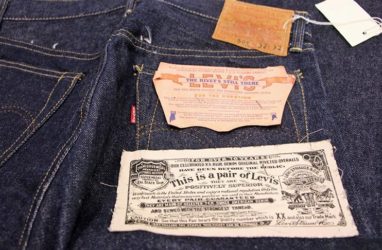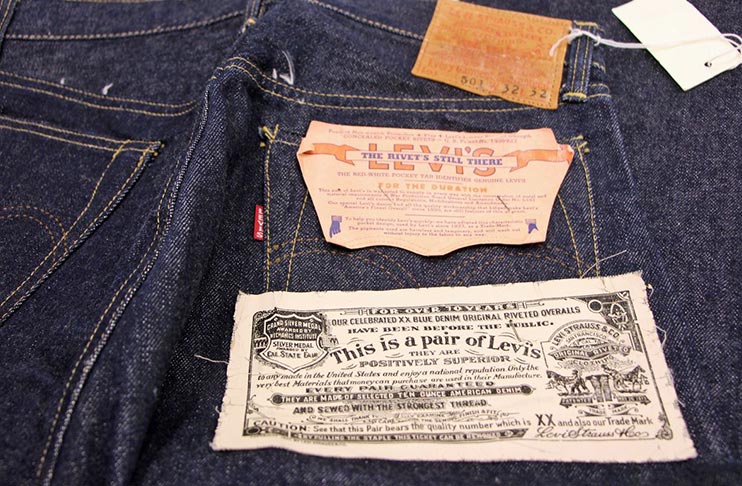
Levi Strauss & Co. to eliminate thousands of chemical formulations from supply chain as part of major sustainability breakthrough. Global jeanswear leader introduces digital manufacturing capability that will eliminate potassium permanganate and other chemicals that have been used industrywide for decades in jeans finishing.
Levi Strauss & Co. (LS&Co.) announced a transformative new operating model that will create a more sustainable supply chain and a cleaner jean. Called Project F.L.X. (future-led execution), this new model replaces manual techniques and automates the jeans finishing process, allowing the company to reduce the number of chemical formulations used in finishing from thousands to a few dozen.
Traditionally, denim finishing – which creates worn, faded design elements on jeans – has been a highly manual, labor-intensive and chemical-reliant process. Digitization enables a responsive and sustainable supply chain at an unparalleled scale.
“Thirty years ago, jeans were only available in three shades: rinsed, stonewashed and bleached. Today those three shades have exploded into endless variations, all produced with very labor-intensive jobs and long lists of chemical formulations,” said Bart Sights, vice president of technical innovation at Levi Strauss & Co. and head of the company’s Eureka Innovation Lab. “We’re designing a cleaner jean for the planet and the people who make Levi’s® jeans; and we’re doing it on a scale that no one else has achieved to date.”
This new operating model is a major step forward in LS&Co.’s commitment to achieving zero discharge of hazardous chemicals by 2020 and accelerates the elimination of many chemical formulations that the company’s Screened Chemistryprogram identified as “phase outs.” Among the chemicals that will be eliminated is potassium permanganate, an oxidizer that is used industrywide to replicate authentic vintage finishes.
“This is a significant win for the industry,” said Robert Strand, executive director for the Berkeley-Haas Center for Responsible Business. “It’s inspiring to see how LS&Co. used constraints to drive innovation, paving the way for a more sustainable apparel industry. This is an important step forward that I hope others will follow.”
Beyond eliminating many chemicals, Project F.L.X. is expected to reduce textile waste; by more accurately making what the market needs; and may also provide the opportunity to save water in the future. The company has already proved it can use nearly 100 percent recycled water in the final manufacturing stages with Project F.L.X.; and is exploring the possibility of rolling out this water recycling capability more broadly over time.
Levi Strauss & Co. and Jeanologia partnership
To help unlock the benefits of digitally enabled design and development, LS&Co. turned to long-standing partner Jeanologia, a leader in eco-efficient solutions for fabric and garment finishing. Since 1993, Jeanologia has operated with the ambition of advancing sustainable apparel manufacturing by delivering disruptive technologies; including ozone, laser and e-flow finishing systems. The company’s like-minded focus on scalability was essential to supporting LS&Co.’s end-to-end, transformative vision.

